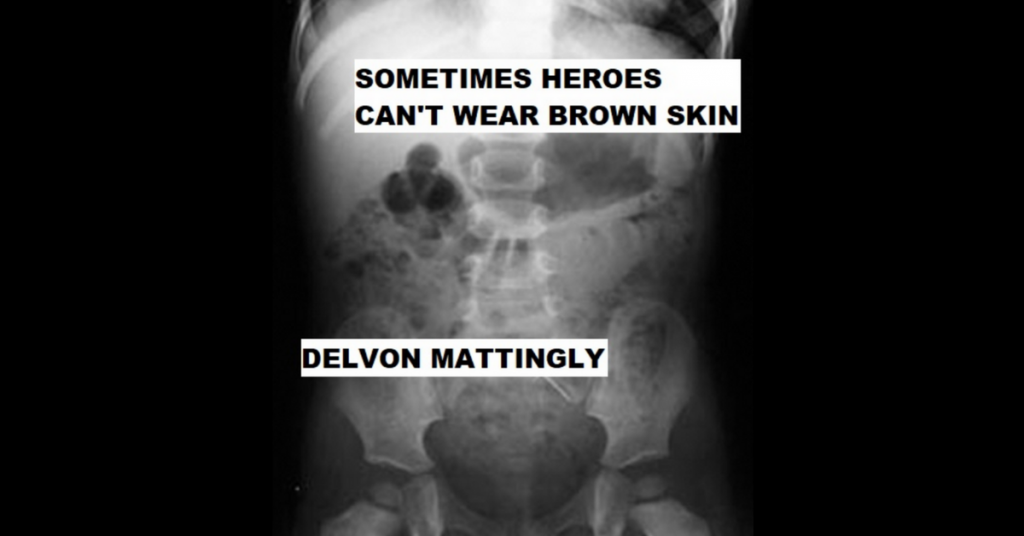
SOMETIMES HEROES CAN’T WEAR BROWN SKIN by Delvon Mattingly
In times of life-and-death, nobody quite grasped the concept of “be quiet.” But for us, it didn’t matter. My peers panicked, whimpered, some nearly hyperventilated—but nothing outclassed the tormenting screams coming from an adjacent room. Nothing could abolish the cackling gunfire, bullets penetrating walls and possibly bodies. Nothing stopped the killer from heading to our room next, glaring at us with a face of apathy, drawing our attention to boast about his body count, and how we were going to add to it. Nobody could do a thing, except for me. I wouldn’t consider my actions gallant. I charged the…
